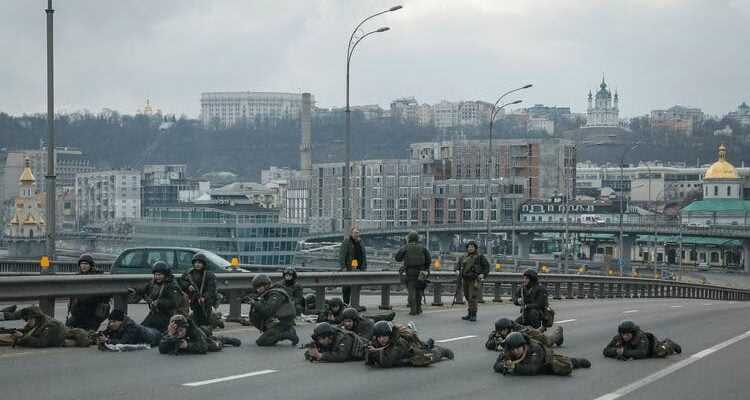The people in the Ukrainian metropolis seek safety in metro stations and ask themselves: how could they suddenly find themselves caught up in a murderous war? Despite military inferiority, the spirit of resistance is awake.
Members of the Ukrainian National Guard prepare for the overwhelming enemy.
Nobody slept well last night in Kiev. The sirens wail again and again, and again and again dull vibrations make the window panes shake. In the north of the city, a column of black smoke rises and is immediately bent over by the wind, looking like a thundercloud before the red dawn.
At one, three-thirty and eight in the morning, the hotel guests are ordered into the parking garage over the loudspeaker. Countless rumors then circulate there: the Russians are already in the city. There was shooting in the government district in the center. You can hardly get out of the country. A Georgian with, as he says, good connections “with the secret services” (we don’t know which ones) wants to know that the Ukrainians have had considerable success and have already killed many Russians.
Fighting spirit is meant to make up for outdated weapons
The long night is followed by a spooky day. The city glows in the sun, but it’s unreal empty. Hardly any traffic. Only a few people are out and about, almost everyone is lugging heavy backpacks or bags. Now and then detonations can be heard, then most of them immediately stand still and listen. Once planes appear on the horizon; that makes every pedestrian stop. The machines make a few rounds and disappear again, apparently without having fired anything, because there are no vibrations.
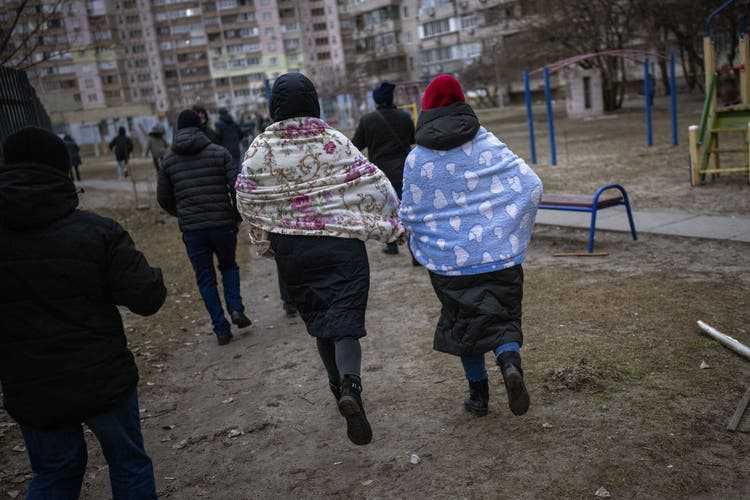
Rocket alarms keep calling on residents to seek shelter
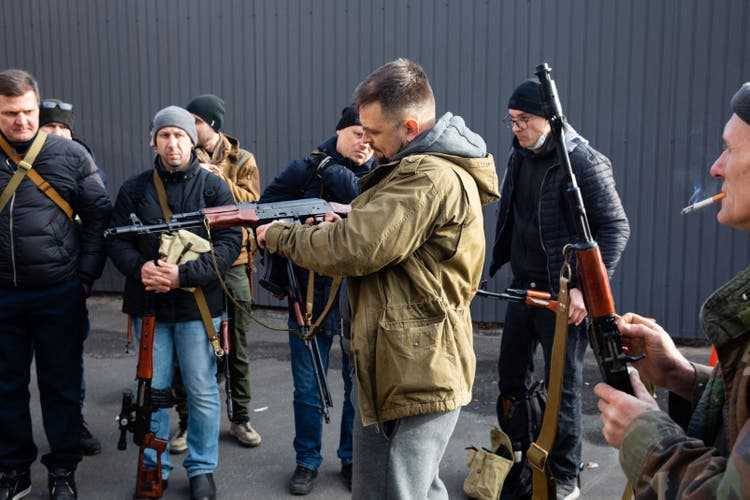
Obsolete weapons were handed over to the local militia
The air raid alarm sounds twice, but nobody cares. Everyone keeps walking, looking up, ready at any moment to disappear into a doorway or a subway entrance. Everything is quiet, although only a few kilometers away, in the city center, fierce fighting is raging.
Reservists stand behind bushes at intersections, most armed with rifles that don’t exactly look like high-precision weapons. What they lack in material they make up for in fighting spirit, at least rhetorically. Mikita, a 35-year-old locksmith from Zhitomir, says he is “joyfully” ready to die for his fatherland. He looks very serious and yet seems almost comical because he says the sentence twice, in rapid cadence, with the same words and the same intonation. But then the eyes fall on the slender bazooka lying next to him and on his Kalashnikov, not even the latest model, and anxiety rises. This man is a death row inmate.
How did this war come about?
How quickly a war brings misery to the people can be seen in the Kiev subway stations. They have been famous for their depth since Soviet times. The rattling ride down into the shafts lasts long minutes. At the beginning of the week there was still a lot of traffic here – now thousands of people are sitting on the stairs and in the corridors during the bomb alarms. Some have wrapped themselves in blankets, others listen to music, some play cards. The older ones sit on camping chairs, the younger ones on the floor. Men line the walls, staring grimly into space or at their cell phones.
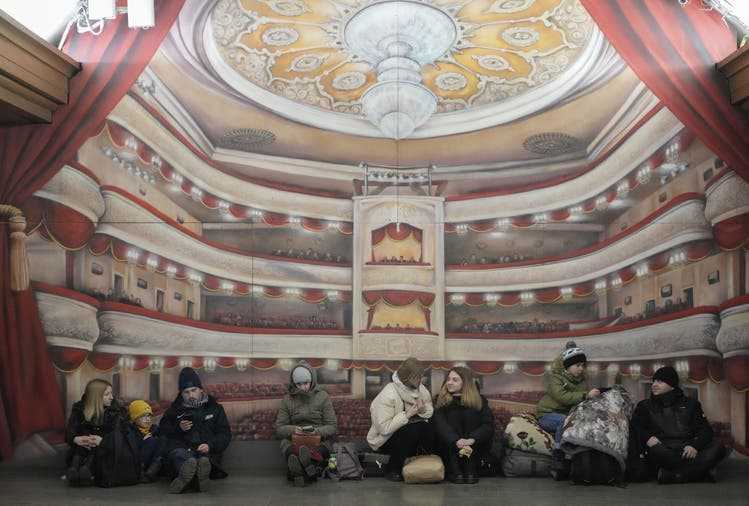
Thousands of people seek shelter in the stations of the deep Kiev subway
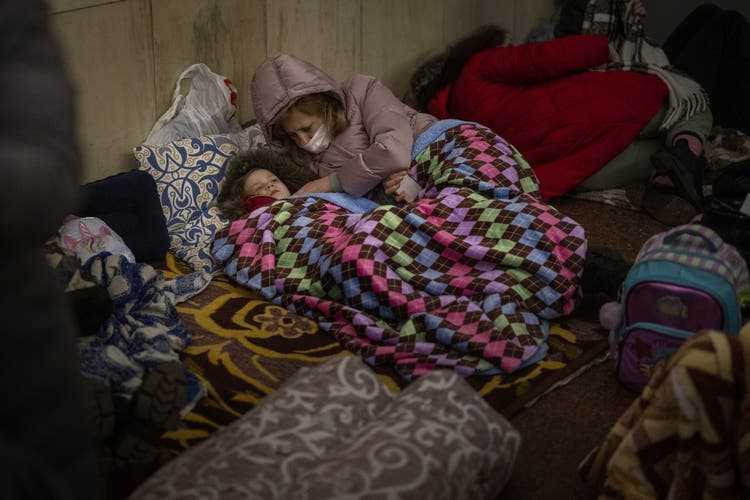
Families huddle together in the cold subway station
Babies sleep in prams, dogs sniff empty milk bottles. Families huddle together for warmth. One has brought an accordion, it is unclear whether his patriotic singing makes the bystanders happy. Daniela Zipkina, a trained educator, unrolls a small mattress and watches as her well-wrapped offspring, armed with hats, quickly fall asleep.
It’s harder for adults. They huddle together and keep talking about the same thing: how on earth can it be that we, modern people in the 21st century, considerate, clever people who thought war was something of the past, something unspeakably unfashionable, irrational Stupid, how come we sit here and feel fear creep into our souls like cold into our bones?
The big puzzle: fight or surrender
A question that is discussed again and again: Which is better? A long war as a result of fierce resistance or a short, bloodless one made possible by a quick surrender? The answers vary. A young woman with a fine, sensitive face pleads for the bloodless variant and is then rudely and rudely insulted as a traitor by an older man. That’s exactly what Putin always says, the man says: give up and nothing will happen to you. We mean well, so don’t be rude.
The bulk of the people in the small group gathered at the Arsenalna metro station support the combative variant. But most find the young woman nice and the rough defender unsympathetic.
